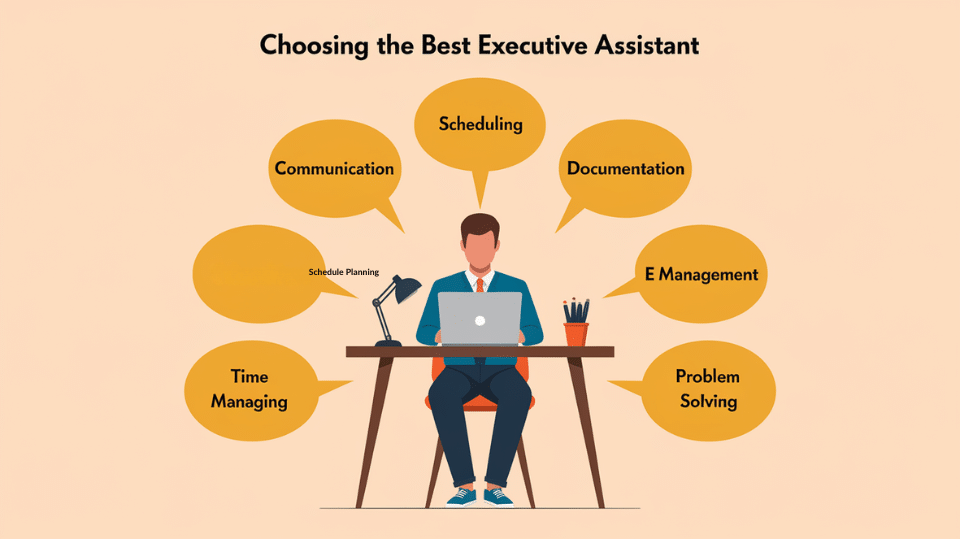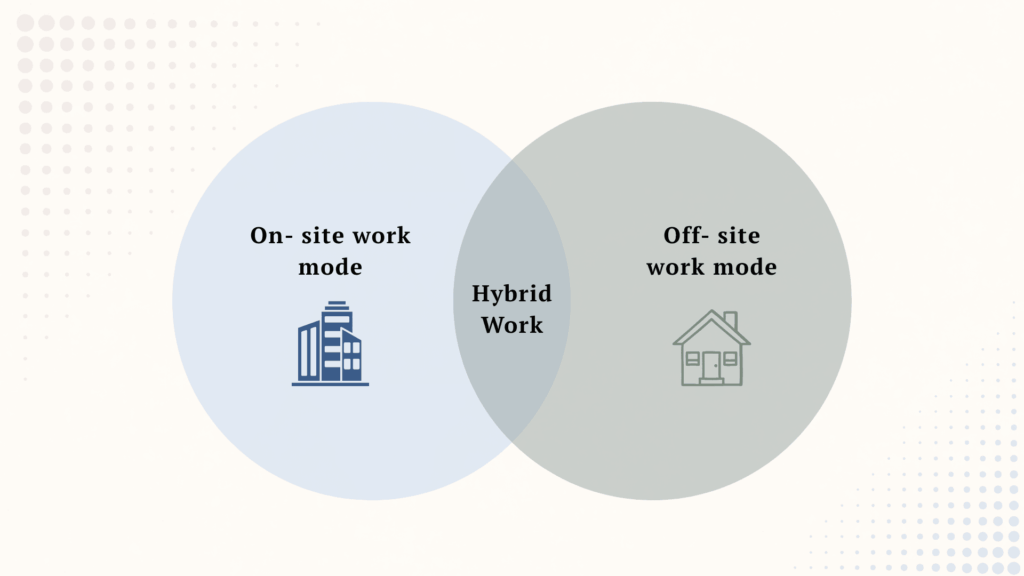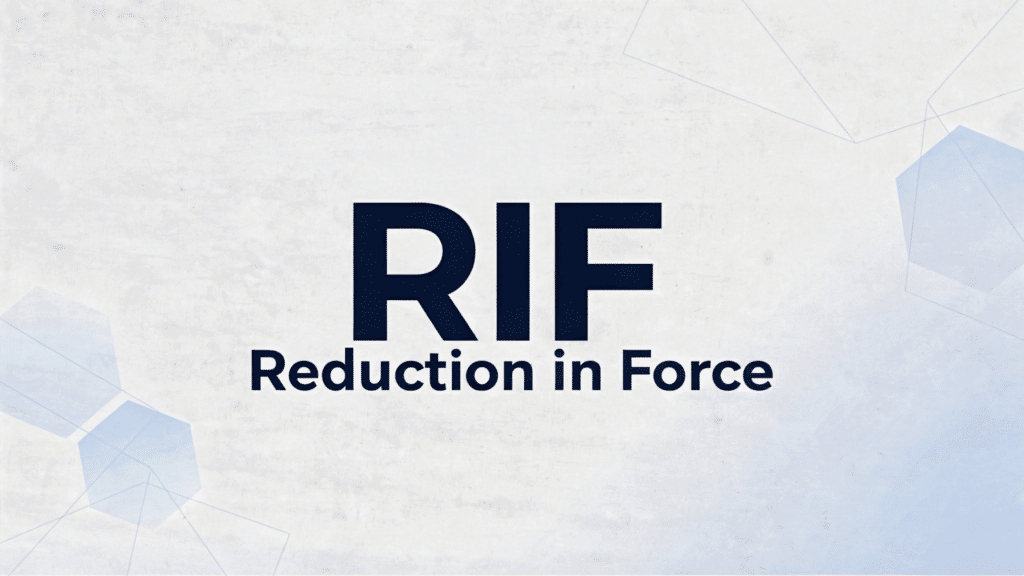Are you struggling to stand out in the competitive world of executive support?
Top companies demand more than basic administrative skills from their assistants today.
Executives need professionals who can be strategic partners, not just task managers.
Good executive assistance is about much more than scheduling meetings and answering emails.
Successful assistants must develop a comprehensive set of skills that enable them to change from support staff to critical team members.
This blog will reveal the list of essential skills every executive assistant needs in 2025, showing you exactly how to become an indispensable professional who drives business success.
Upskilling because you are facing nepotism in the workplace? Read how to tackle workplace nepotism.
What is the Role of an Executive Assistant?
An executive assistant plays a crucial role in helping leaders stay organized, informed, and focused.
They act as the central point of coordination between executives, teams, and clients, managing schedules, meetings, and communication to keep daily operations running smoothly.
People often confuse an executive assistant’s role with the administrative assistant’s role, but the role goes far beyond administrative work.
Executive assistants handle planning, problem-solving, travel arrangements, and sometimes even confidential decision-making.
They anticipate needs, manage time efficiently, and ensure that the executive’s goals are met without distractions.
In short, an executive assistant is both a strategic partner and a trusted advisor, someone who helps convert leadership plans into action with precision, discretion, and professionalism.
Top 3 Executive Assistant Skills You Need to Succeed
1. Communication Skills
Communication is the heart of this job.
An assistant acts as the voice and ears of an executive, so clear, respectful, and timely communication is key.
That means writing emails that sound polished, giving updates that are easy to follow, and knowing how to speak with people at every level, from staff to senior leaders.
Listening carefully matters just as much as talking.
When you truly understand what your executive means, you can respond faster and avoid mistakes.
2. Organizational Skills
Executives depend on structure.
They have tight schedules, complex meetings, and endless priorities.
Strong organizational skills help keep everything in order so nothing falls through the cracks.
An organized assistant sets up systems that make work easier using planners, apps, or digital folders to manage time and tasks.
It’s not just about neatness; it’s about control, balance, and peace of mind.
3. Problem-Solving Skills
Problems appear when you least expect them.
Maybe a meeting gets canceled at the last minute or an important document goes missing. A skilled assistant doesn’t freeze; they act.
Problem-solving means staying calm, thinking quickly, and finding a way forward.
It’s about seeing challenges as puzzles to solve, not obstacles to fear. That reliability makes executives trust you more with every situation.
Key Soft Skills Every Executive Assistant Should Know

4. Interpersonal Skills
Executive assistants work with people constantly.
They interact with colleagues, clients, and leaders every day.
Good interpersonal skills make those connections smooth and positive.
It’s about being approachable, kind, and confident.
When you can talk easily with others, teamwork feels natural, and problems get solved faster.
5. Emotional Intelligence
Being emotionally intelligent means understanding how people feel and responding appropriately.
It’s about staying calm when things get tense and offering support when someone is stressed.
This skill helps assistants handle sensitive situations gracefully.
It also builds trust, which is something every executive values deeply.
6. Adaptability
Change happens daily. Priorities shift, plans fall apart, and new tasks arrive suddenly.
Adaptable assistants stay cool and flexible through it all.
Instead of getting frustrated, they adjust and keep things running.
This ability to bend without breaking is what makes an assistant dependable, no matter how unpredictable the day becomes.
7. Confidentiality and Integrity
Executives often share private information.
That means assistants must protect it completely. Maintaining confidentiality shows maturity and respect.
Integrity goes hand in hand with it’s about doing the right thing, even when no one’s watching. Trust is earned over time, and this skill makes it unshakable.
Hard Skills For an Executive Assistant Resume
8. Time Management
Time is valuable. Managing it well means making sure the executive’s hours are used wisely.
That includes balancing meetings, preparing materials, and allowing time for breaks and planning.
Good time management also means being aware of your own limits.
It’s about setting priorities, focusing on what matters most, and working efficiently rather than endlessly.
9. Strategic Planning
Executive assistants often take part in planning company goals and keeping projects on track.
Strategic thinking helps connect everyday actions with long-term outcomes.
When you understand the bigger picture, you can organize tasks in a way that supports real progress.
It’s one of the most respected executive assistant skills for professionals looking to grow.
10. Project Coordination
Many assistants help lead or manage projects.
That means organizing meetings, keeping track of milestones, and making sure everyone stays informed.
Strong project coordination combines communication and follow-through.
When you can move a project from start to finish without confusion, you show your value beyond administrative work.
Modern Technical Skills for the Executive Assistant Role
11. Software Proficiency
Technology keeps offices running. Knowing how to use programs like Microsoft Office, Google Workspace, or CRMs makes everything smoother.
An assistant who can build a presentation, organize spreadsheets, or create reports stands out.
These tools turn complex information into clear and helpful insights.
12. Data Management and Reporting
Data is everywhere, and it’s powerful when handled correctly.
Executive assistants often manage information: client lists, budgets, or meeting notes, and must keep it organized and accurate.
Being skilled at creating reports or analyzing data means you can help your executive make better, faster decisions.
13. Digital Communication Tools
Modern assistants use tools like Slack, Zoom, and Teams every day. Knowing how to communicate effectively through these platforms is just as important as talking face-to-face.
It’s not only about knowing the tools, it’s about using them with professionalism and clarity.
14. Automation and AI Tools
Automation tools save time.
They help assistants schedule meetings, manage reminders, and even organize tasks automatically.
Learning how to use these tools shows initiative. It also frees up time for more creative and high-value work.
Leadership Driven Skills to Put in a Resume
15. Decision-Making Skills
Every day brings choices. Some are small, like adjusting a meeting time, and others are bigger, such as choosing how to handle a conflict.
Being confident in your decisions shows leadership.
It tells others you can think independently and act with good judgment.
16. Negotiation Skills
Negotiation isn’t only for sales; it’s for daily problem-solving.
Maybe you’re coordinating travel, managing budgets, or working with vendors.
Good negotiation balances assertiveness with respect.
It means getting what’s needed while maintaining good relationships along the way.
17. Team Collaboration Skills
No one succeeds alone. Great executive assistants know how to bring people together.
They connect departments, coordinate projects, and keep everyone aligned with leadership goals.
Collaboration builds unity. When people trust you, they’re more willing to communicate and cooperate, two key ingredients for productivity.
Top Executive Assistant Skills in 2025
18. Cybersecurity Awareness
Protecting digital data is now part of the job.
Assistants handle sensitive information like passwords and reports, so understanding basic security practices keeps everything safe.
Simple steps like using secure systems and avoiding shared passwords make a big difference in protecting company information.
19. Remote Coordination
Many teams now work across cities or countries.
Coordinating remotely requires clear communication, organized scheduling, and awareness of different time zones.
A strong remote coordinator keeps everyone connected, informed, and focused, no matter where they are.
20. Digital Organization
Digital clutter can slow everything down.
Being organized online through proper file naming, folders, and shared drives saves time and prevents confusion.
This simple skill makes you faster, more reliable, and far easier to work with.
Related reads: Harvard Resume Words to Put in Resume
How to Build and Improve Skills as an Executive Assistant?
1. Continuous Learning and Certifications: The most successful assistants never stop learning.
Courses, certifications, and training programs help improve both technical and leadership abilities.
If learning about communication, project management, or software, every new skill you gain adds to your professional value.
2. Mentorship and Peer Learning: Working alongside experienced executive assistants is one of the best ways to grow.
Watching how they manage pressure, communicate, and plan can teach lessons that no book or course can provide.
Mentorship builds confidence.
It also reminds you that growth is a shared process, not a solo mission.
3. Practice and Self-Evaluation: The only way to master these skills is through consistent practice.
Keep track of what you do well and where you can improve. Asking for feedback shows humility and dedication.
Over time, this habit of reflection will turn experience into expertise.
Conclusion
The world of executive assistance is always shifting.
Success comes from learning, adapting, and pushing your skills forward.
Every great assistant starts somewhere, and your career begins with a commitment to growth.
Small improvements compound over time, turning ordinary support into an extraordinary partnership.
Your value isn’t just about completing tasks. It’s about understanding the bigger picture and supporting leaders with intelligence and care.
Technology, communication, and strategic thinking will be your greatest tools.
Keep learning, stay curious, and believe in your potential.
The most successful assistants are those who never stop developing themselves and their capabilities.










